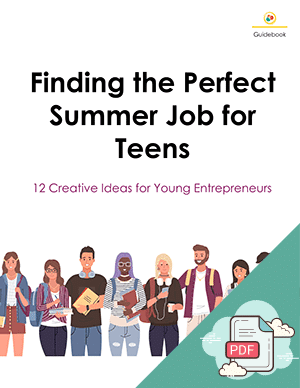We all want our children to grow up to be caring, capable, and independent adults who make sound decisions about their relationships, careers, and lives in general. When we encourage independence in children, we’ll be enabling them to become independent adults, which is one of the most important roles we have as parents.
In order for our children to become independent, as parents, we have to grow from being their first teacher to becoming a guiding coach and then becoming their mentor.
One of our recent blogs on helping kids learn to earn highlights the importance of helping our children learn the difference between needs and wants and making sure they have to strive for those things they want.
Even from a young age, kids are very good at getting us to give them what they want rather than having to work for or earn it. The same is true for independence. Our children, if left to their own plans, will actively work to make sure that we feel an obligation to support them as long as possible.
You might be thinking, aren’t I supposed to provide for my kids, make sure their needs are met, and enable them to grow up in a wonderful environment and provide them with great experiences so that they can make wise choices about their lives?
Well, yes. But they also have to learn about honesty and integrity. We have to allow them to make choices when they are in our care so they can be confident in their abilities when we’re not around. They have to experience the consequences of those choices. They have to become great problem solvers.
It takes time and practice for our children to become independent. It takes an equal amount of time and practice for us as parents to allow that to happen. Learning to transition between the three overlapping roles of parent, coach, and mentor will allow that process to happen more smoothly.
Mighty Kids Academy has written about the key ingredients for a wonderful environment and excellent experiences for kids. At the conclusion, the article highlights the importance of not just providing children with a safe and caring environment and myriad experiences to open up their world. But also, being present.
At Raising Families, we call that the 3 Es—environment, experiences, and engagement.
The first E is for the environment we want to create for our children. The second E is the experiences we want them to have. The third E stands for engagement, or important discussions about what they experienced and/or what’s going on around them that help them put their world into words.
Most of us strive to provide our kids with the best environment and experiences we can as they grow up. But if we want to encourage independence in children, providing our kids with the best environment and experiences we can doesn’t mean we should do everything for them or hand them everything they want.
While all three Es are important, engagement is by far the most important element to raise independent children. Engagement is also by far the most challenging. Opening up about what goes on in our lives leads to important discussions about actions we take, our beliefs, our personal relationships, the future, what bothers us, what we worry about, and more. For some, that is a difficult ask.
Encouraging independence in the early years.
Our work and feedback continue to show that parents tend to fall short on the amount of quality time they spend with their kids to put into context what they have seen and done so that they understand their experiences.
For example, by the time a child is four or five, they should have the ability to verbalize and discuss their feelings with you. If you want your child to help you clean the house and they choose not to help, we can get angry or we can become a teacher.
Explain that cleaning the house is part of what you do as a family—we help each other take care of our family space because we all live and use the space together. If they still don’t want to help, which is likely, then calmly explain they still need to participate and you’ll do it together.
This may result in a tantrum. That’s okay. Don’t let the boundary go just because they have feelings about it. If a tantrum happens, ride the wave of emotion as calmly as you can and let them know you’re there when they’re ready.
When they’re calm, ask them why they got upset. Why didn’t they want to help? What big feelings were they having? Let them know that sometimes you have big feelings too.
Then ask if they like getting help when they ask for it. Let them know that everyone contributes to the house getting dirty, and now that they’re old enough, they need to help care for the family spaces. Talk about the consequences of letting their space get out of control.
The consequence could be not being able to have a friend over since they would use the family space. You can tailor the consequence to your family. Just make sure the consequence relates to the situation.
By this age, while you are still a teacher for your kids, they understand that there are consequences for their actions. The choice is theirs. Allowing our children to make mistakes and learn from them is a hard thing for us to do, but it’s the key to them wanting and gaining their independence.
Things change in the tween and teen years.
During the tween years, the lives of our children are much more complex, and the opportunities to engage become even more important. Some parents encourage their tweens to keep a journal to write down their successes or the challenges they face.
At this age, we should be in coaching mode (not telling them what to do, but rather listening without judgment and providing recommendations and advice and then allowing them to make decisions).
I’m reminded of a story Elane likes to share about one of the girls and her friend making an apricot pie using fruit from the backyard tree. They were wildly successful in making the pie until it came time to bake it. When they put the pie in the oven, they put the oven on “cleaning cycle,” the one that burns everything to a crisp so you can clean the oven. That’s exactly what happened to the pie, burnt to a crisp!
What a learning experience. Truth be known, the girls did not ask Elane how to use the oven. For them, it was a huge learning experience about not only ovens but, more importantly, learning to ask for help when needed and necessary. A true coaching opportunity!
As kids reach the teen years, there are even more opportunities for independence. It’s been interesting to watch our grandchildren transition from being dependent on their parents to get them to their activities when some of the grandchildren did not want to drive.
As parents, there are two choices. One, drive the kids to their activities, or two, simply tell them that they have a choice, get there on their own or stop going. It’s been amazing to see the response. All the grandchildren decided to learn how to drive … ah … independence!
Encourage Independence in Children So They Become Caring, Capable, and Independent Adults
When you create the right environment and experiences and then engage with your children as a parent teacher, parent coach, and then parent mentor, you encourage independence and allow them to become independent children. Independent children are one step closer to growing up to be caring, capable, independent adults.
Remember, the first 40 years may be the hardest, but they are the most rewarding on the road to your child’s independence.
Free Guidebook
Finding the Perfect Summer Job for Teens
12 Creative ideas for young entrepreneurs
What To Do Next
1. Read more in the blog:
The Family Wisdom Blog shares valuable ideas across diverse topics.
2. Explore the Printables Library:
Our printables library is filled with must-have activity ideas, checklists, guides, and workbooks.
3. Subscribe to Our Newsletter:
Sign up for our newsletter for parenting tips to help you create the family team you've always wanted.
Rick Stephens
Rick Stephens is a co-founder of Raising Families. With 33 years of experience as a top-level executive at The Boeing Company and having raised four children of his own, he is able to support parents and grandparents by incorporating his knowledge of business, leadership, and complex systems into the family setting.
In his free time Rick enjoys road biking, scuba diving, visiting his grandkids, and generally trying to figure out which time zone he’s in this week. Read full bio >>




